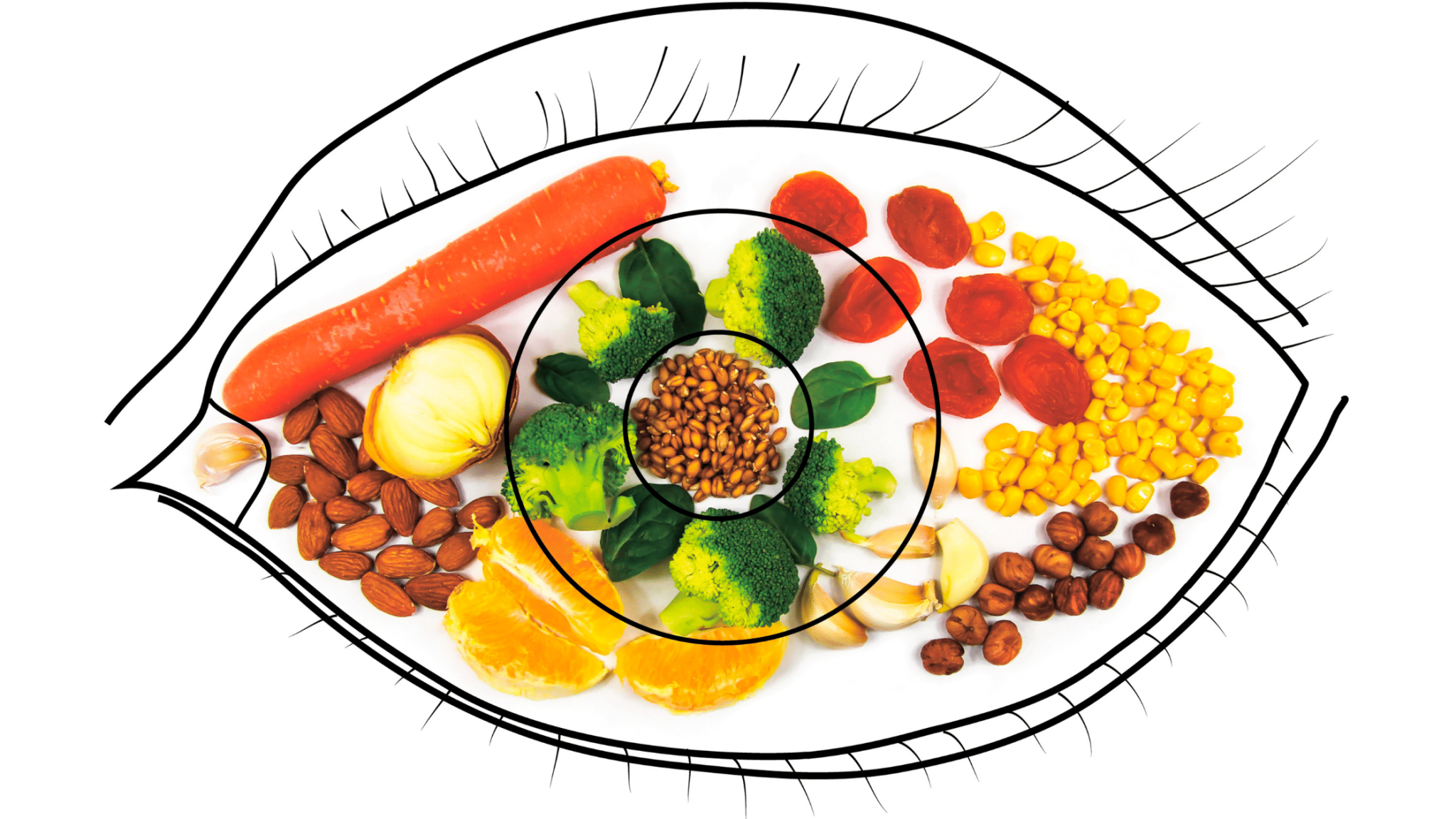Ever wondered how our nutritional habits have an impact on eye health? Well, there’s more than meets the eye – with a myriad of nutrients, minerals and vitamins from a variety of food groups playing a role in protecting and maintaining our eyes.
Eye health recommendations are supported by the Australian Guide to Healthy Eating, which highlights the importance of a balanced diet for overall health and wellbeing.

Antioxidants
These are the vitamins A, C and E that help to fight free radicals which are associated with poor eye health outcomes, such as age-related macular degeneration, cataract, and diabetic retinopathy. All whole foods of plants and animal origin contains dietary antioxidants, however, there is a higher amount found in a variety of brightly coloured fruits and vegetables or dairy products, than meat and fish products. For example, good sources of Vitamin A can be found in cheese, eggs, milk, yoghurt, and vegetables with beta-carotene such as red, yellow and green (leafy) vegetables (coloured peppers, carrots, spinach, pumpkin). Good sources of Vitamin C can be found in citrus fruits, berries, broccoli, and brussels sprouts. Good sources of Vitamin E can be found in nuts and seeds, plant oils and wheatgerm.
Lutein and zeaxanthin
Also known as antioxidants from the carotenoid family, lutein and zeaxanthin play a specialised role in your vision as these are the only dietary carotenoids found in your retina. Good sources of lutein and zeaxanthin include egg yolk, corn, dark green leafy vegetables (kale, romaine lettuce, beet greens), grapes, kiwi fruit and orange.
Omega-3
Omega-3s are often recommended to helpmanage age-related macular degeneration and dry eye disease. These are essential fatty acids that can only be obtained through our diet as our bodies are unable to produce them naturally. Sources of omega-3 are derived either from marine-based foods (seafood and fish) or plant-based sources (walnuts, hemp seed, flax seed).
Limit alcohol
Alcohol should be consumed occasionally as an excessive amount can have negative effects on your overall health, including your eyes. As per the NHMRC guidelines for Australia, it is recommended that healthy men and women should drink no more than 10 standard drinks a week and no more than 4 standard drinks on any one day.
With an increasing number of us working from home, here are some tips on screen time:
- Keep an arm’s length distance between the computer screen and your face.
- Take breaks between screen time as spending too much time on a device strains your eyes.
- It is ideal that the lighting of the surroundings is brighter than your devices.
All information is for educational purposes only, please seek advice from your healthcare practitioners regarding your health.
Other Helpful Resources:
- Get Healthy NSW Free Health Coaching
- Resources from Vision Australia
- Developing Healthy Habits with Active Living Healthy Eating NSW
Nutrition Australia NSW is proudly supported by NSW Health.




